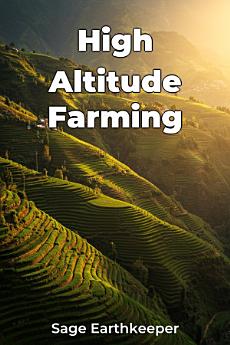High Altitude Farming
About this ebook
The book reveals how altitude significantly impacts crop physiology and how traditional methods, like terracing and soil conservation, are crucial for resilience. This book uniquely balances scientific analysis with the experiences of farmers, avoiding romanticization while critically assessing modern interventions.
It emphasizes understanding the interplay between environmental constraints, traditional knowledge, and technologies. For example, some communities have adapted to extreme climates by cultivating specific crops suited to high altitudes and short growing seasons.
The book begins by detailing mountain regions' unique environmental characteristics and their effects on agriculture. It progresses to exploring traditional systems, modern technologies, and concludes with strategies for food security and sustainable development. This comprehensive approach makes it valuable for students, researchers, and anyone interested in sustainable development and food security within Earth Sciences and Geography.






